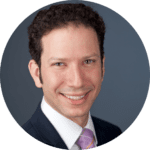“2016 Health Insurance Enrollment: Private Coverage Declined, Medicaid Growth Slowed,” E. Haislmaier and D. Gonshorowski, (The Heritage Foundation, July 26, 2017), http://allh.us/Thar
“Are U.S. Health Insurers Finally Getting To Stable Ground In The ACA Individual Market?” (S&P Global, Jan. 5, 2017), http://allh.us/g4eG
“How Premiums Are Changing in 2018,” A. Semanskee, G. Claxton, and L. Levitt, (Kaiser Family Foundation, Nov. 14, 2017), http://allh.us/UXdG
“Insurer Participation in ACA Marketplaces: Federal Uncertainty Triggers Diverging Business Strategies,” E. Curran, J. Giovanelli, and K. Lucia, To The Point, (The Commonwealth Fund, Jan. 5, 2017), http://allh.us/yDeR
“Is the Affordable Care Act Helping Consumers Get Health Care?” M. Z. Gunja, S. R. Collins, and H. K. Bhupal, (The Commonwealth Fund, Dec. 6, 2017), http://allh.us/duCK
“Steps Toward a More Sustainable Individual Health Insurance Market,” Issue Brief, (American Academy of Actuaries, April 2017), http://allh.us/TUhG
“Following the ACA Repeal-and-Replace Effort, Where Does the U.S. Stand on Insurance Coverage?” S. R. Collins, M. Z. Gunja, and M.M. Doty, (The Commonwealth Fund, Sept. 7, 2017), http://allh.us/xXCT
“Health Care Executive Order Would Destabilize Insurance Markets, Weaken Coverage,” S. Lueck, (Center on Budget and Policy Priorities, Nov. 29, 2017), http://allh.us/tyM6
“Health Care Order Expands Insurance,” M. D. Tanner, (CATO Institute, Oct. 15, 2017), http://allh.us/3Jvq
“National health expenditure report shows we have not solved the cost problem,” J. Antos and J. C. Capretta, (American Enterprise Institute, Dec. 6, 2017,) http://allh.us/vhGN
“What’s at Stake: States’ Progress on Health Coverage and Access to Care, 2013-2016,” S. L. Hayes, S. R. Collins, D. Radley, et al., (The Commonwealth Fund, Dec. 14, 2017), http://allh.us/NdH6









